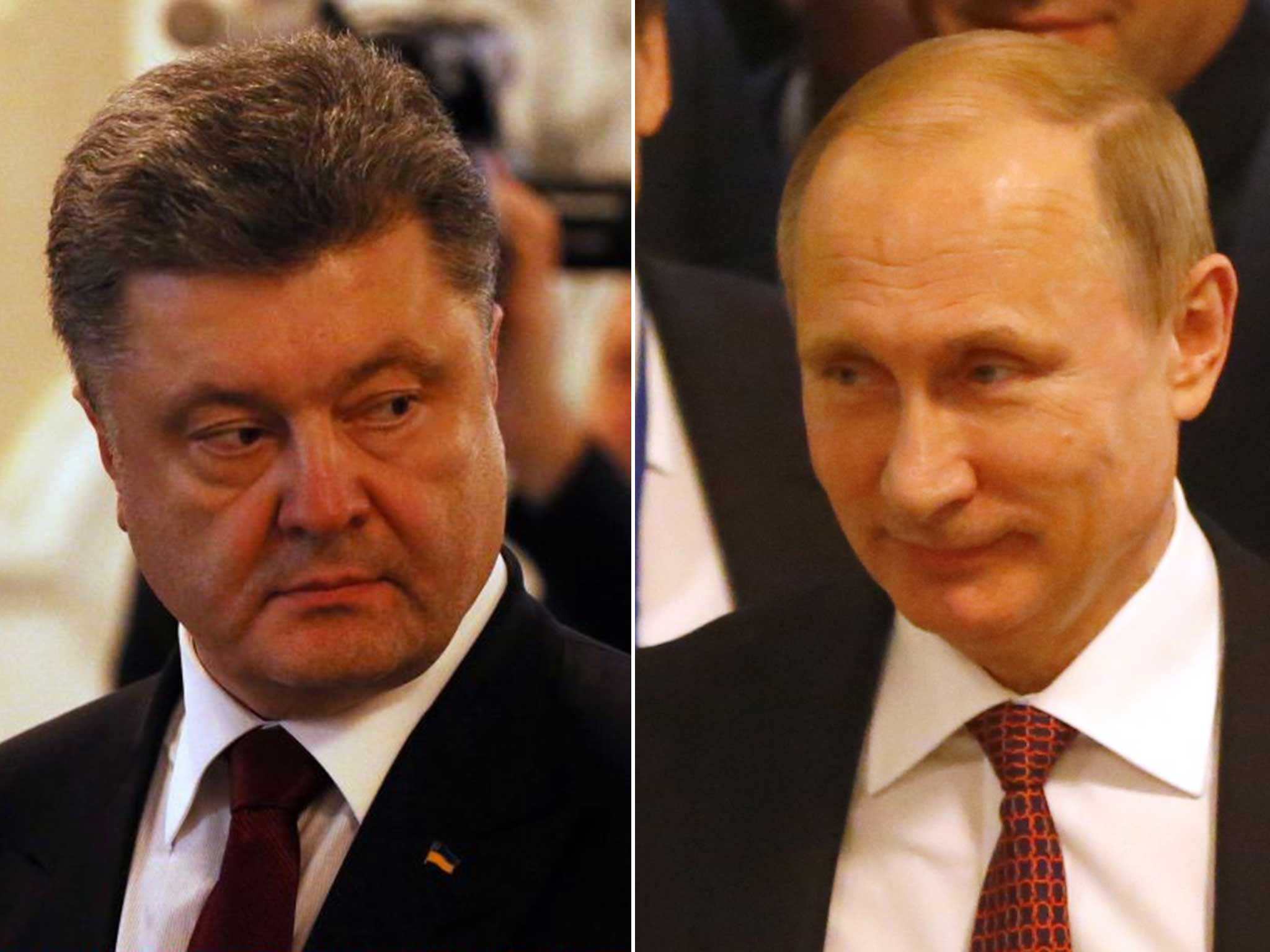Ukraine crisis: So what have Putin and Poroshenko agreed after 16 hours of negotiations?
Analysts are cautious, pointing out last ceasefire - agreed in September - quickly fell apart

Your support helps us to tell the story
From reproductive rights to climate change to Big Tech, The Independent is on the ground when the story is developing. Whether it's investigating the financials of Elon Musk's pro-Trump PAC or producing our latest documentary, 'The A Word', which shines a light on the American women fighting for reproductive rights, we know how important it is to parse out the facts from the messaging.
At such a critical moment in US history, we need reporters on the ground. Your donation allows us to keep sending journalists to speak to both sides of the story.
The Independent is trusted by Americans across the entire political spectrum. And unlike many other quality news outlets, we choose not to lock Americans out of our reporting and analysis with paywalls. We believe quality journalism should be available to everyone, paid for by those who can afford it.
Your support makes all the difference.Ukrainian and Russian leaders have agreed a ceasefire in the eastern European state after almost 16 hours of tense negotiations in Belarus.
The leaders of France, Germany, Ukraine and Russia announced that a ceasefire would begin on 15 February, with French president Francois Holland telling reporters the agreement would bring “relief to Europe”.
But questions remained over whether Ukraine and pro-Russian rebels have agreed on all of the terms.
Agreed
- Ceasefire implemented on 15 February
- Heavy weaponry withdrawn
- Prisoners released
On-going negotiations
- Rebel autonomy in eastern regions
- Status of Debaltseve
- International borders returned to Ukraine within the year
Russian president Vladimir Putin announced the ceasefire would begin on 15 February, as well as claiming he had ensured provisions on border controls, humanitarian issues - and special status for the rebel regions.
His claims on the rebel-held territory were rebutted by Ukrainian leader Petro Petroshenko who denied there was any agreement on autonomy in the eastern part of the country.
Speaking to a Russian TV station afterwards, Mr Putin admitted: "It wasn't the best night for me, but it's a good morning."
Another disagreement was over Debaltseve, north-east of Donetsk, which is a key railway junction for rebel forces.
The town has been a flashpoint of the fighting in the past few weeks, with pro-Russian rebel forces claiming the town’s Ukrainian defenders are surrounded and are expected to surrender. Kiev disputes this.
"We were presented with various unacceptable conditions of withdrawal and surrender," Mr Poroshenko told reporters after the talks. "We did not agree to any ultimatums and stated firmly that the cease-fire that is announced is unconditional."
However, the two leaders did manage to hammer out an agreement to withdraw heavy weaponry by 31-43 miles in the next two weeks.
This should bring relief to civilians desperately attempting to survive in the conflict-torn regions.
Last week United Nations figures placed the number of civilian casualties between 31 January and 5 February above 200. More than 5,400 people have been killed since the conflict erupted last year.
The BBC also reported that all prisoners are expected to be released. Mr Poroshenko claimed that Ukraine would re-establish control of international borders by the end of the year. His remarks were echoed by President Hollande, although it remains unclear how such control would be effected in rebel-held areas.
Hope for the ceasefire remains fragile, although Germany’s Chancellor Angela Merkel said the agreement offered “a glimmer of hope”.
A previous September agreement fell apart after both sides attempted to gain more territory.
The news comes as the International Monetary Fund (IMF) agrees an £11.5billion loan to Ukraine. It is hoped that the Extended Fund Facility will stablise Ukraine’s economy, restore growth and improve living conditions.
Additional reporting from Reuters and Associated Press
Join our commenting forum
Join thought-provoking conversations, follow other Independent readers and see their replies
Comments